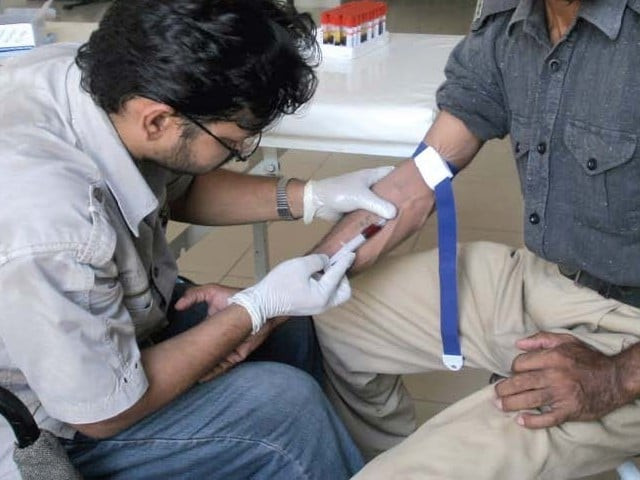Hepatitis C medicine: Drug makers gave fake data
DRAP claims medicine available at lowest prices

DRAP claims medicine available at lowest prices. PHOTO: EXPRESS/FILE
This was stated by the regulator in a strongly worded statement issued on Thursday in the backdrop of what it termed was a vilification campaign by certain elements who were misleading the public on health-related matters.
Some young pharmacists and a lawyers’ forum on Tuesday had alleged that the drug regulator was only registering expensive medicines manufactured or imported by multinational companies while local manufacturers are deliberately not being allowed to register their drugs, creating an artificial shortage of cheap lifesaving drugs.
In a detailed response, DRAP on Thursday said that the drug Sofosbuvir, indicated for the treatment of chronic hepatitis-C (CHC) as a component of a combination antiviral treatment regimen, had been approved by the US Food and Drug Administration (FDA) in December 2013 for Gilead Sciences inc.
DRAP and the health ministry had taken steps to make economical versions of the new drug available. In this regard, 19 pharmaceutical companies had been granted registration and their products were now available at low prices.
“Hepatitis C drugs produced in the country are mostly generics while multinational companies only brought the new drug in the past,” DRAP said in the statement.
“In November 2013, DRAP – for the first time - decided to allow local manufacturers to apply for the generic version of new drugs by giving these applications ‘out of queue status’ and considered these cases as public health urgency without compromising on safety, efficacy and quality. As a result, the local manufacturers were able to manufacture generic versions of the new drug in the country so as to bring economical generic versions of new drugs for the benefit of the poor,” it added.
To ensure risk were not taken with local patients, the registration board in its meeting held on November 7, 2013, specified numerous requirements to ensure safety and quality of these new drugs including stability studies.
However, this requirement was difficult to meet for many local manufacturers.
Moreover, the body explained, the firms were unable to arrange large quantities of raw material for the drug before registration and provide required data. Hence, processing for these incomplete applications was halted.
However, after a discussion with stakeholders in 2015, DRAP proposed revised requirements for local manufacturers, including the stability studies based on scientifically rational laboratory scale batches instead of larger pilot scale batches.
This was also approved by the Registration Board in its August 2015 meeting as a procedure to be followed in future for all new drug generic versions.
“This was practically feasible under the local circumstances,” the body said.
On the directions of the Minister of State for National Health, on-site inspections were conducted by panels of experts are approved by the Registration Board to confirm quality, specification, test analysis, facilities, API source authenticity and especially for the stability data of all the applicant firms, to ensure quality of generic versions of these new drugs.
In the case of Sofosbuvir tablet, the panel inspected 16 applicants at that time. Of these, data submitted by only nine companies could be verified while seven were deferred and called for hearing as their data could not be verified.
“The onsite inspections revealed that many companies had submitted fake and incomplete data which could not be verified at the time,” DRAP said.
Therefore, the body argued that claims of associations that as soon as companies submit an application, the Registration Board should grant them approval, was not rational.
“Authorities only grant registrations through proper legislation to ensure quality, safety and efficacy of drug products at affordable prices,” DRAP said.
Published in The Express Tribune, April 7th, 2017.



















COMMENTS
Comments are moderated and generally will be posted if they are on-topic and not abusive.
For more information, please see our Comments FAQ